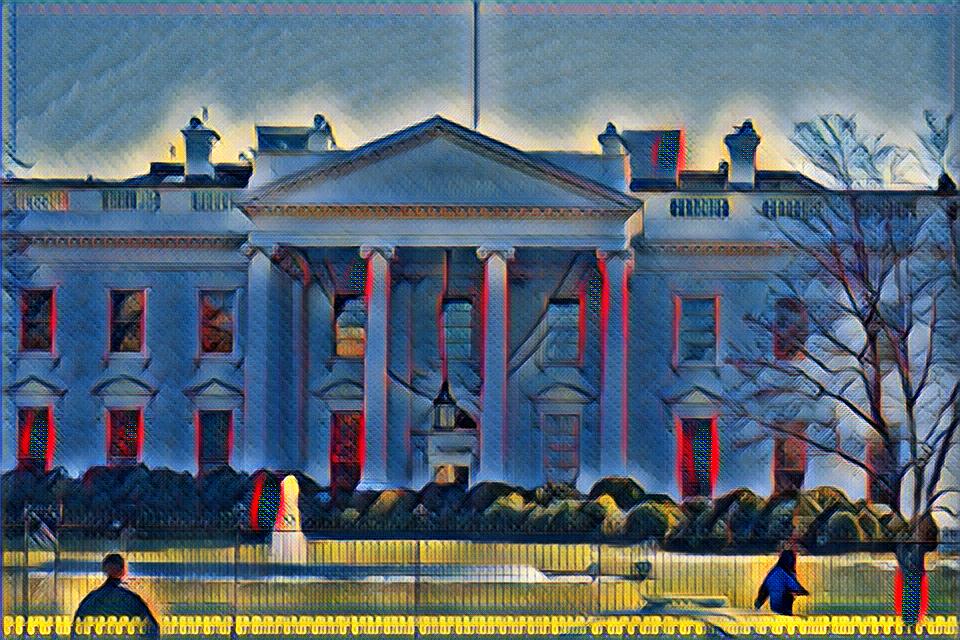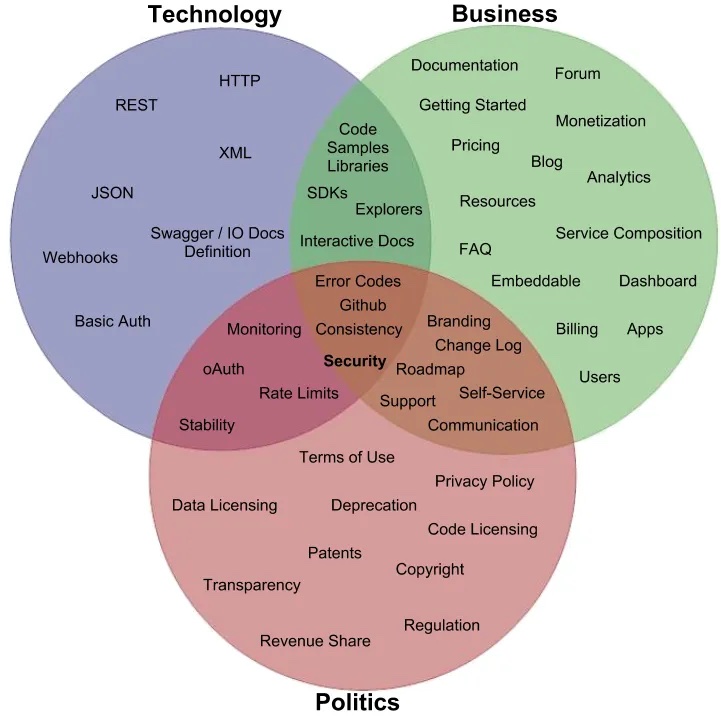
While making my way around the API landscape for the last thirteen years I have seen that many of the words we use describe APIs are the same, but the meaning of these words will vary depending on who you are and the role you play in the great API hustle. I began this API journey like most, focused on the technology of APIs. I quickly learned that while technology plays an important role, the most important dimension of this great API hustle is more about the business of APIs. I find the business of APIs to be interesting but full of some of the most unimaginative people who can’t (or won’t) see the bigger, more meaningful picture. While I started writing about what I consider to be the politics of APIs back in 2014, I’d say it is the last remaining aspect of this API hustle that interests me in 2023—-making it the top narrative here on API Evangelist moving forward.
My day job focuses on API governance at the enterprise level. When it comes to API Evangelist, what I am learning in my day job applies to my storytelling, but I see governance as just one (important) dimension of the politics of APIs. In my definition of the politics of APIs, federal, state, and municipal governments at the top, industry level concerns being the next important dimension, and the enterprise tier being the base of a lot of what we are talking but, but it tends to be hidden and out of sight. Now government, industry, and business make up what I’d consider to be the foundational aspects of API politics, but there are also other actors like industry groups, standards, bodies, analysts, vendors, investors, and of course the end-users who all are playing a role in governing or being governed within this API-driven reality we are rapidly become consumed by.

People used to regularly snicker when I used the phrase the “politics of APIs” back in 2014, but after Cambridge Analytic, Uber Greyball, and recent FTC cases around anti-competitive behavior of Facebook and others, I have heard this less and less. APIs play a fundamental role in politics, and the politics of APIs plays a central role in how industries work or do not work, and whether or not enterprise organizations are able to remain dominant and competitive. APIs are commerce. APIs are social. APIs are mobile. APIs are AI. APIs govern how we move through our day. The politics of APIs matter a great deal. I’ve been focused on the government, industry, and enterprise levels when it comes to the technology, business, and politics of APIs for a good 7 or 8 years now. Read the archives of this blog. Moving forward I will be writing with an emphasis on just the politics of APIs. The politics of APIs within enterprises, within industries, but also how that shapes government and elections. This is what interests me, and what I feel reflects the most important storytelling needed to nudge things in the right direction.
I am exhausted from looking at APIs through the lens of vendors and other venture-backed startups. I am hyper focused on the strategy and tactics of API governance at the enterprise level in my day job. This will set the tone for what I write about here on API Evangelist. However, I will care more about standards and specifications more than I will about services and tooling. I will love on open source tools more than commercial startups, but I’m under no delusions that open source is the answer. Open source is essential, but not infallible and an antidote to all the bullshittery that occurs across the great API hustle. I will have little time for what interests investors. However, I will still be keenly listening to the stories of analysts, journalists, bloggers, developer advocates, as well as investors and politicians. These stories matter, just usually the thing they are talking about will not matter, it is all about reading the tea leaves when it comes to technology echo chambers.
As before. I am writing here for myself. My writing is designed to push my research and my thinking on the politics of APIs. I won’t be writing about the details of my work at Bloomberg, but as always there will be a Venn diagram with the standards, specifications, tooling, and other aspects of my day job. I have the official blessing of Bloomberg to keep API Evangelist storytelling going, but all of my stories are mine, and are not the opinions of Bloomberg. There are no more sponsors of API Evangelist. There won’t be much social media as part of the storytelling on API Evangelist. I’ll post any of the stories I feel are relevant to LinkedIn, but I am way too exhausted to care about much else when it comes to broadcasting my message. This will probably be the greatest shift in my approach, reflecting my earlier focus on research and storytelling, and not worrying about readership and numbers, while admitting what a toll social media took on me and the stories I’ve told over the years.

The diagram I am including in this post is my first attempt at visualizing the politics of APIs and the API economy at scale. I am looking to invest in my “Scrollytelling” skills, so that I can tell a more interactive, data, and policy-driven story on how I see the politics of APIs shaping our world. This will take time, and I’ll work on drafts of stories that flesh out the narrative, and I’ll invest some weekend and evening cycles into learning Scrollytelling frameworks. I feel like this is the only way I can truly tell a story of this scale and scope. This diagram reflects my 763K foot view of the politics of APIs, but when I dive down to the ground floor and put on my had as one of the individual users on this diagram and apply this diagram to the hundreds of enterprises, multiple industries, and countless government agencies I depend on as a user on any given day, I begin see things very differently. I get “the bends” or pressure sickness from change in altitude, and we aren’t even talking about the impacts from the complexity of it all.
I am only interested in stories that support a wider narrative at this 763K altitude. It means many API people will not always understand what I am talking about. That is fine. When you solely operate within a single enterprise, or you look at the world daily through the eyes of venture capitalists, industry analysts, tech bloggers, vendors, open source maintainers, and advocates, you live by a different set of narratives intentionally engineered and produced to serve the larger accidental API economy that has jumped out of the service-oriented architecture (SOA) Petri dishes two decades ago. I hope to help guide people through any of this chaos as I can, at any level, but I think this is one area I will be shedding from the original mandate of API Evangelist. I am more interested in connecting the dots rather than guiding people through the sprawling API landscape. I will try to modularize and distill things down into consumable stories for people to tune into, but this isn’t the primary motivation of these posts.
The definition of politics comes up after a quick Google search as, “the activities associated with the governance of a country or other area, especially the debate or conflict among individuals or parties having or hoping to achieve power”. Increasingly these are API-driven activities. If you replace a country in that definition with a state or city, as well as industry and enterprise–you have APIs shaping activities. I am fully aware that since APIs are my jam, that I see APIs everywhere. If you are a database person, you see databases as the most important thing. If you are a mobile application developer, you see this as the most important aspect of what is happening. The thing is, APIs are the pipes for everything. APIs are how you access the database. APIs are the backend of the applications. Yes the data we gather and store, and the applications are essential in engaging with users and citizens, but APIs are powering all of the activities of governance these days, and drive the debate or conflict among individuals or parties who are shaping power within the enterprise, across industries, and within countries, states, and municipalities. This is the reason behind my emphasis on the politics of APIs, because I feel that in the same way that the business of APIs trumped the technology of APIs in importance, I feel like the politics of APIs are going to prove to be the most critical of all in the next couple of decades–significantly more than the technology and business of APIs has in the last two decades.
